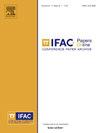Classification Tasks with Local and Global Resource Allocation Constraints⁎
Q3 Engineering
引用次数: 0
Abstract
Efficiently allocating limited resources in classification problems is an important task in many real-world applications. We propose a two-phase framework consisting of machine learning and optimization models to address this challenge. In the first phase, a machine learning model is used to obtain a probability matrix for potential classifications. In the second phase, the probability matrix is used as input for a linear programming model, which is designed to minimize misclassification costs while considering resource constraints. This study addresses both local and global resource availability constraints, which we define in the context of classification problems as: target-based constraints—limiting the total number of entities that can be assigned to various classes; and feature-based constraints—limiting the number of entities from each subgroup, defined by a specific feature value, that can be assigned to various classes (e.g., geographic-based limitations). We prove that the coefficient constraint matrix in the linear programming model is totally unimodular, guaranteeing that integer optimal solutions can be obtained using efficient linear programming algorithms. An experimental study illustrates the effectiveness of the proposed framework in terms of time and performance in resource allocation compared to the commonly used conventional method. This two-phase approach advances the application of machine learning and operations research in resource-constrained environments, offering a scalable framework for solving complex classification problems under various constraints.
具有局部和全局资源分配约束的分类任务
在分类问题中有效地分配有限的资源是许多实际应用中的重要任务。我们提出了一个由机器学习和优化模型组成的两阶段框架来解决这一挑战。在第一阶段,使用机器学习模型获得潜在分类的概率矩阵。在第二阶段,将概率矩阵作为线性规划模型的输入,该模型在考虑资源约束的同时最小化误分类代价。本研究解决了局部和全局资源可用性约束,我们在分类问题的上下文中将其定义为:基于目标的约束——限制可分配给各种类别的实体总数;基于特征的约束——限制每个子组的实体数量,由特定的特征值定义,可以分配给不同的类(例如,基于地理的限制)。证明了线性规划模型中的系数约束矩阵是完全单模的,保证了用高效的线性规划算法可以得到整数最优解。实验研究表明,与常用的传统方法相比,所提出的框架在资源分配方面的时间和性能方面都是有效的。这种两阶段的方法推进了机器学习和运筹学在资源受限环境中的应用,为解决各种约束下的复杂分类问题提供了一个可扩展的框架。
本文章由计算机程序翻译,如有差异,请以英文原文为准。
求助全文
约1分钟内获得全文
求助全文
来源期刊

IFAC-PapersOnLine
Engineering-Control and Systems Engineering
CiteScore
1.70
自引率
0.00%
发文量
1122
期刊介绍:
All papers from IFAC meetings are published, in partnership with Elsevier, the IFAC Publisher, in theIFAC-PapersOnLine proceedings series hosted at the ScienceDirect web service. This series includes papers previously published in the IFAC website.The main features of the IFAC-PapersOnLine series are: -Online archive including papers from IFAC Symposia, Congresses, Conferences, and most Workshops. -All papers accepted at the meeting are published in PDF format - searchable and citable. -All papers published on the web site can be cited using the IFAC PapersOnLine ISSN and the individual paper DOI (Digital Object Identifier). The site is Open Access in nature - no charge is made to individuals for reading or downloading. Copyright of all papers belongs to IFAC and must be referenced if derivative journal papers are produced from the conference papers. All papers published in IFAC-PapersOnLine have undergone a peer review selection process according to the IFAC rules.
 求助内容:
求助内容: 应助结果提醒方式:
应助结果提醒方式:


